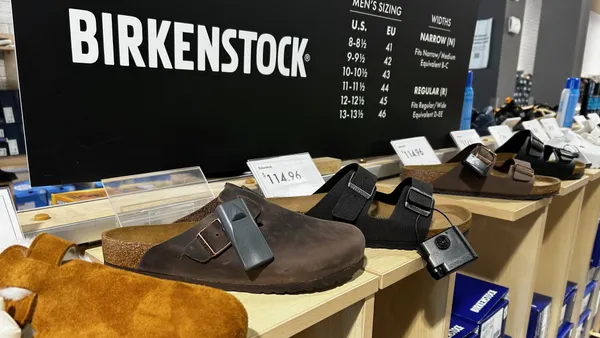Dive Brief:
-
Amazon on Tuesday launched Business Prime Shipping, a paid annual membership program for registered multi-user business customers in the U.S. and Germany.
-
Amazon Business customers can sign up for an annual Business Prime Shipping membership based on the number of users on their business account: $499 for up to 10 users; $1,299 for up to 100 users; and $10,099 for more than 100 users, according to a company press release.
-
In the U.S., Business Prime Shipping offers unlimited free two-day shipping on eligible items for all users on an Amazon Business account.
Dive Insight:
Staples and Office Depot, which are each scrambling to strategize growth after their merger plans failed to pass muster in court last year, must be grinding their teeth as news from Amazon Business continues to roll out.
And there could be more to come, as promised by Amazon Prime Vice President Greg Greeley in a statement on Tuesday. "We are excited to introduce a shipping program designed to meet the needs of businesses and will continue to innovate on behalf of customers to make business purchasing even easier," Greeyley said.
That's no surprise, actually, considering the rapid growth of B2B e-commerce, according to Adrien Nussenbaum, U.S. CEO and co-founder of marketplace firm Mirakl, who noted Forrester Research's report that the market will reach $1.2 trillion by 2021, (compared to the online consumer market, estimated to be $645 billion in the same period).
"Amazon and B2B companies are recognizing the importance of having an aggressive e-commerce plan," he told Retail Dive in an email. "In just five years since first launching AmazonSupply, Amazon Business has amassed over 1 million business customers. For this reason, it's imperative that manufacturers and distributors seek out new business models to better serve customers. Otherwise they're about to get ‘Amazoned.’"
But he recommends against giving in to the temptation of joining Amazon's online juggernaut. "Partnering with Amazon is not a long-term solution," Nussenbaum said. "Instead, B2B players can learn from companies like Hewlett Packard Enterprise, who’ve launched their own online marketplace to better serve customers, and continue to not only hold but increase their market share."
The swift expansion of Amazon's B2B business is precisely what Staples and Office Depot described to a skeptical Federal Trade Commission last year as their merger plans faltered, according to Matt Sargent, senior vice president of retail for Frank N. Magid Associates.
Beyond the fact that Amazon's B2B growing prowess is allowing the e-commerce giant onto that playing field, its programming in the space also offers companies real differentiation. "This offering addresses many pain points for businesses, including the ability to track shipments and procurements," Sargent said.
This summer Sargent’s firm found in survey data that 56% of workplace purchasers had recently bought general office supplies from Amazon. Another 53% had bought technology products and 42% had purchased break room and cleaning supplies from the e-commerce giant, according to Magid data.
B2B sales have been the bright spots of Staples' and Office Depot's respective businesses in recent years. That's one reason why Staples' new private equity owners are spinning off the corporate division from the retail side, and why Office Depot recently acquired an IT services company to complement its corporate sales division.
The profit in those divisions was the likely draw for Amazon, which famously sees other companies' margins as an opportunity to enter a sector.














